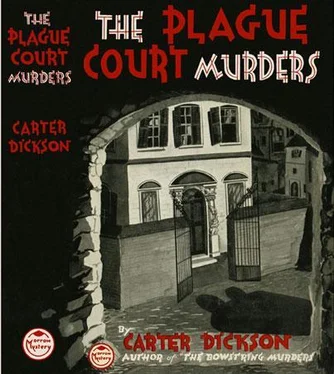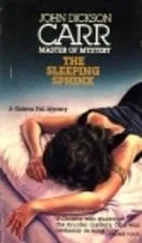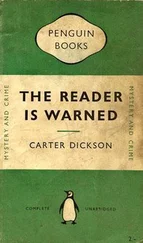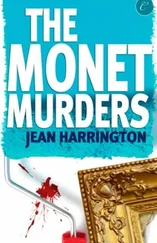"I say, my boy," interposed H.M., wrinkling his brow, "how long have you had that cough?"
"Cough?"
"Cough. You know: whoosh! Huh-huh-huh! Cough. You've been blastin' up the dust all afternoon. Did you have it last night, for instance?"
Featherton stared. "Certainly I did," he replied, with such dignity that it sounded like pride in the achievement. "But, dammit, I don't see that this, is the time for discussing coughs! I don't like to admit it, Henry, but you've betrayed us. I don't think I care to hear much more. Gad! Confound it! I'm due at the Berkeley for a cocktail; past due. And I'll wish you all good afternoon."
"Sure you don't have a drink?" asked H.M. vaguely. "No? Sorry. Well-er-goo'by."
The door slammed, and H.M. winced. He blinked owlishly in that direction. Then he shook his head, curiously as though there were some puzzling thought which he tried to roll into place.
H.M. repeated suddenly:
“You are old, said the youth, as I mentioned before,
And have grown most uncommonly fat;
Yet you turned a back-somersault in at the door –
Pray, what is the reason o f that?'
"What?" said Masters.
"Oh, I was just thinkin' . never mind. Let's see, I was born in '71. Yes, that would make Bill Featherton born in '64 or '65. There's energy for you, hey? He'll be dancin' at a supper-club tonight. ` Si la jeunesse savant, et si -' Bah. Go on, Masters. You went to Darworth's house with the solicitor. Tell me about it."
Masters spoke hurriedly.
"Number 25 Charles Street. Stiller and McDonnell and I went there. Very quiet, dignified place, mostly shuttered. He's had it about four years. Only person there was a kind of butler-manservant; Darworth lived out, I gathered. He used to keep a chauffeur, but for the last few years he's driven his car himself."
"This butler, now-?" suggested H.M.
"N-no. Straight, I should say, sir. Excellent references.
In fact, he named somebody he used to work for, also in Mayfair, who'd called him up as soon as Darworth's death was in the papers, and asked him if he wanted his old place back. We verified it. It's true."
"Uh-huh. Sounds like my wife. Watch out for gossip, Masters. Well?"
"I gathered he'd only taken the place because there was so much time off. Get that, sir? I asked him about the visitors and the seances. He said he knew Darworth was interested in the occult. But, whenever there was to be a seance, he was always given the evening off.
"The house is dismal inside; like a museum. No fires, few rooms lived in, full of all those rummy pictures and statuary. We went upstairs to Darworth's bed-and-dressing room, and Stiller opened a wall safe in the dressing-room. There wasn't much that was revealing; Darworth had been very careful about his papers, or else he's got 'em somewhere else.
"Then we went to the seance-room." Masters looked amused and contemptuous. "It was a big room up under the roof. It had a black carpet as soft as feathers, and a curtained alcove for the medium to sit in. Ah, ah! And then, sir-well, I'll admit we had a bit of a shock. Coming on her suddenly like that, sitting in the chair with her neck twisted over the back and moving round like it hurt her, with just that dullish light through the windows - I tell you, I don't mind admitting . . ."
"Coming on who?" demanded H.M., and opened his eyes.
"That's what I was going to tell you, sir, when the phone rang. On Lady Benning. And she was moaning."
"Oh, yes. Yes. What was Lady Benning doing there?"
"I don't know, sir. She gabbled some nonsense about this being James's room, and for us to get out. Porter - that's this butler chap - swore he hadn't let her into the house. Then she started to curse us. Lummy, it was awful, sir! That is, her being a lady, and refined and all that - you know you feel embarrassed - and an old lady, too. That seemed to make it worse. Then I felt a bit sorry for her, because she got up, and was very lame. But she wouldn't let anybody help her, and sat down again.... Well, we hadn't time to waste, so we had to go to work on the room.... '
"Go to work on the room? How?"
Again the easy, tolerant, contemptuous smile. "I tell you, sir, of all the clumsy stuff I ever saw, this was the worst! How Darworth got away with it I don't know, unless it was his personality that carried him. Lord, he'd never court investigation.... The whole room was wired. Electric coils and magnet in the table for spirit-raps. Dictograph attachment in the chandelier, so every word spoken could be heard in another room - we found the little place, a sort of trunk-room, on the same floor, where Darworth could sit and control the whole seance. One of those home wireless-sets hidden in a panel behind the medium's alcove: microphone arranged, so Darworth could be all the voices. Gauze ectoplasm in those folding packets; a gauze panel on a sort of magic-lantern projection outfit for floating-faces; tambourines on wires; a rubber glove stuffed with wet tissue paper---“
"Never mind the inventory," H.M. interrupted irritably. "Well, sir, Bert and I went to work and ripped that room to pieces. And Lady Benning - it's funny how noise must affect some people. She watched us. Every time we'd tear out a wire or something, she'd stiffen up and shut her eyes. When I was pulling that dummy wireless-attachment out from behind the medium's alcove, I carried it over to the table. I saw the tears were running out of her eyes. ... Not crying like you think of people crying, just those tears and no blinking or anything. Then she got up and started to go out again; and I'll admit I was nervous. I ran after her (she let me take her arm then), and I said I'd take her down and put her in a cab."
The recollection disturbed Masters. He stroked his solid jaw, and he seemed annoyed with himself for giving what he would have called "impressions" instead of facts; for he pulled himself up and abruptly recited in a strange police-court fashion:
"I took the witness downstairs. Er - the witness looked up at me and said, 'Would you like to take the clothes off me, too?' She emphasized the word `clothes', so I - er -I didn't know what in lum's name she – er - what the witness was getting at, sir. She was wearing something fancy, not like an old lady at all, and had a lot of paint on
At H.M.'s gesture, I had already gone over to pour out our drinks; and both H.M. and I looked at the Inspector. The hiss of the soda-siphon seemed to affect him as a slur on his powers of understanding.
"Just so, sir. I got a cab and put the witness into it. She leaned out of the window and said.. " He picked up his notebook. "The exact words were, `I talked to my dear, dear nephew's fiancee this morning, Sergeant. I think you, ought to take a little interest in those people, you know. Especially since dear Theodore has seen fit to go away so suddenly."'
H.M. nodded. He did not seem much interested. I said:
"Hullo! Featherton spoke to Lady Benning on the telephone this morning, but she didn't mention to him-"
"Naturally that wasn't pleasant news, sir," Masters continued. "I hurried inside and phoned the Latimers. Miss Latimer answered, very upset. I was pretty sharp with her, but she couldn't tell much. She hadn't got back home (they live in Hyde Park Gardens) until past six this morning. He had got home before her, for she saw his hat and coat in the hall; but she didn't disturb him, and went to bed.
"When she woke up this morning, her maid gave her a note from her brother. All it said was, 'Investigating. Don't worry.' The maid said he had left the house with a traveling-bag at about ten o'clock. It was eleven when she got the note. I asked her why she hadn't let us know immediately, and she admitted she'd been afraid. She begged me not to take any notice of it; said it was another of his vagaries; and that he'd probably be back by evening. First she thought he might have gone to Lady Benning's, but she phoned the old Lady and he wasn't there. Since then she'd been calling everybody he knew, without result.
Читать дальше









